Wild Birds in Suburban Melbourne – Doreen
Visiting Melbourne suburbs again this year with family, I enjoyed walking everyday around the artificial ponds, which are frequented by a variety of water birds. It is a new suburb called Doreen. The water birds included a pair of Black Swans, which according to the locals, return here every year to breed. Other wild birds were the Dusky Moorhen, Great Egret, Eurasian Coot, Purple Swamp Hen and a variety of wild ducks.
I missed seeing the cygnets when they were first hatched. The cygnets are a delightful light greyish bundle of fluff and feathers, a surprising contrast to the parent birds, who are of course black with a bright red beak. The adult Black Swan also has a distinctive white strip towards the end of its beak. Black Swans have white wing tips which are prominent in flight. The male Black Swan is usually larger than female.
On my first sighting of this family of Black Swans the cygnets were already juveniles, covered in soft grey/black feathers, adulthood not too far away judging by their size.
The Black Swan is the official state emblem of Western Australia
I have always been fascinated by the graceful beauty of the Black Swan, whose color is such a contrast to the White Swan. The White Swan was the only known swan in existence for centuries, until the Black Swan was discovered on the west coast of Australia in the 18th century. This discovery was made in the year 1697 by a Dutch sea captain, Willem de Vlamingh’s.
The Black Swan became the official state emblem of Western Australian, as it was unique to that area. Now however, the Black Swan is distributed widely across areas of Australia.
A Family of Black Swans
The pair of Black Swans had six young juveniles this season. They had disappeared from their normal spot and we didn’t see them on our walks for a week. We were beginning to think they must have taken flight and flown away from the area. But no, they reappeared again, only this time alas, there were only five young swans.
Black Swans are very protective of their young
The Black Swans are very protective of their off spring. Each time I photographed, there was a lot of posturing in front of me, holding their long black necks very straight, chests out and bright red beaks directed intimidatingly towards me; warning me to stay my distance.
When they bend their necks and start advancing towards you, you could be in trouble. If this happens it always pays to be very cautious and take a few steps back, so they know you mean them no harm. They are just making sure you keep your distance from their precious brood. They are quite a magnificent bird.
By this second sighting, the young swans were almost as large as the parent birds, their beaks were coloring up with an orange to red shade, and the black feathers were starting to dominate their overall appearance.
Preening sessions for the Black Swans – on the ponds at Doreen
The young swans followed the parent birds out of the water once they decided I wasn’t a threat, and they began preening their feathers on the waters edge. Once the preening session was over, the Black Swans stepped down into the water again, gliding elegantly away with their young. It was late in the afternoon as they began foraging amongst the reeds, aquatic plants and algae for their evening meal. Aquatic plants and algae form the main part of their natural diet.
Breeding habits of the Black Swan
Black Swans mate for life. Their nest is usually a mound of reeds, grasses and weeds, up to 1 meter high in shallow water. Four to eight greenish-white eggs are laid. Both parents share the care of the nest. The cygnets are usually looked after by the parent birds for a period of nine months.
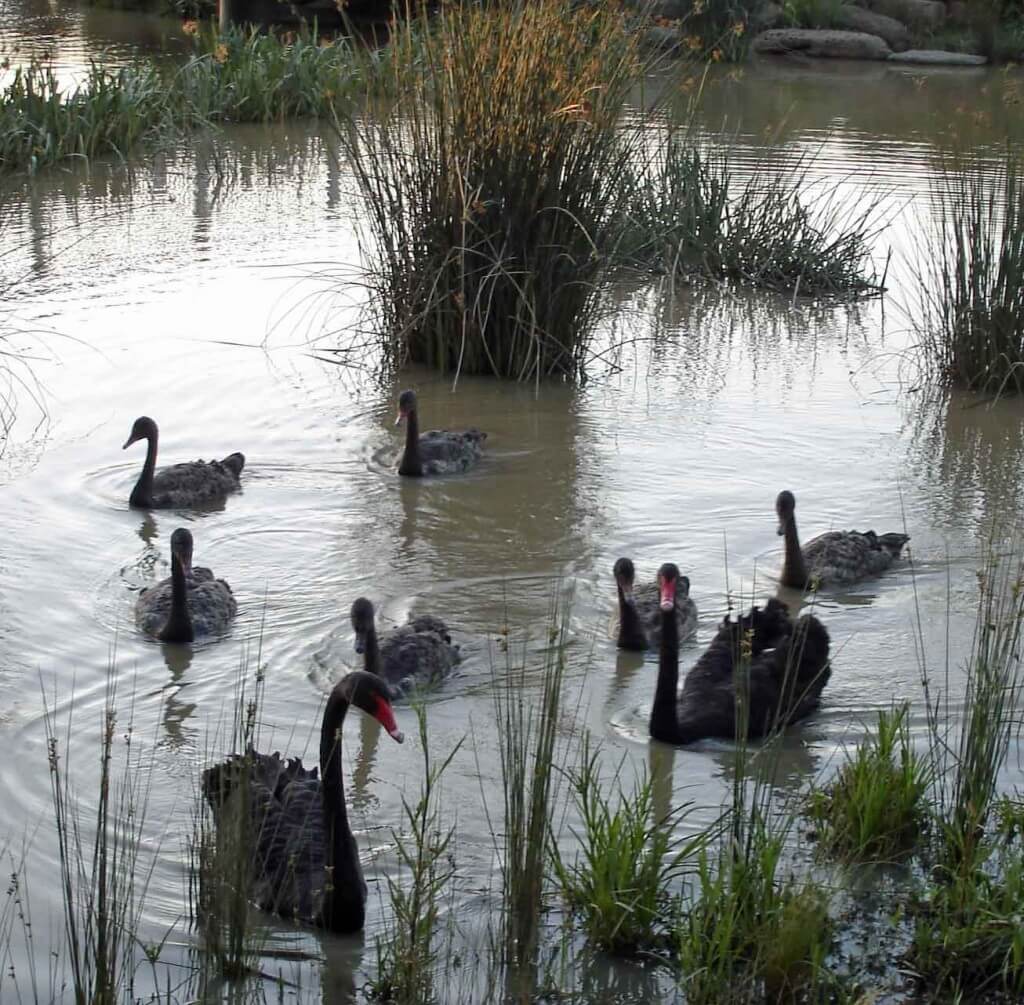
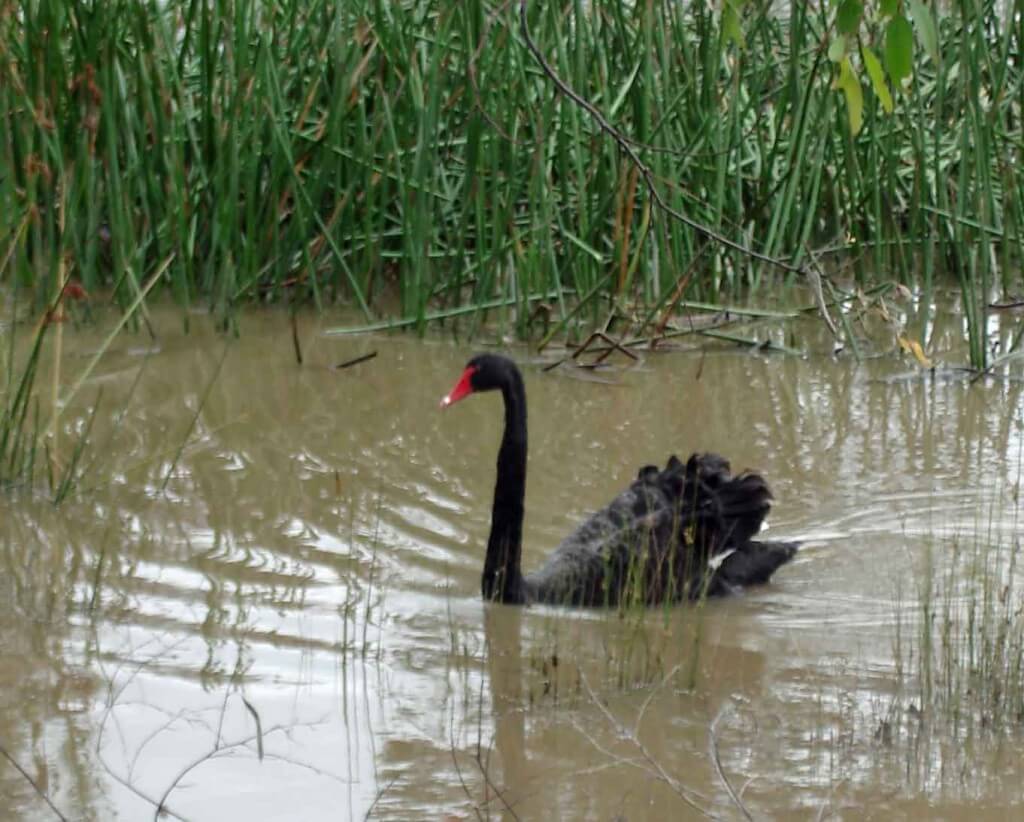
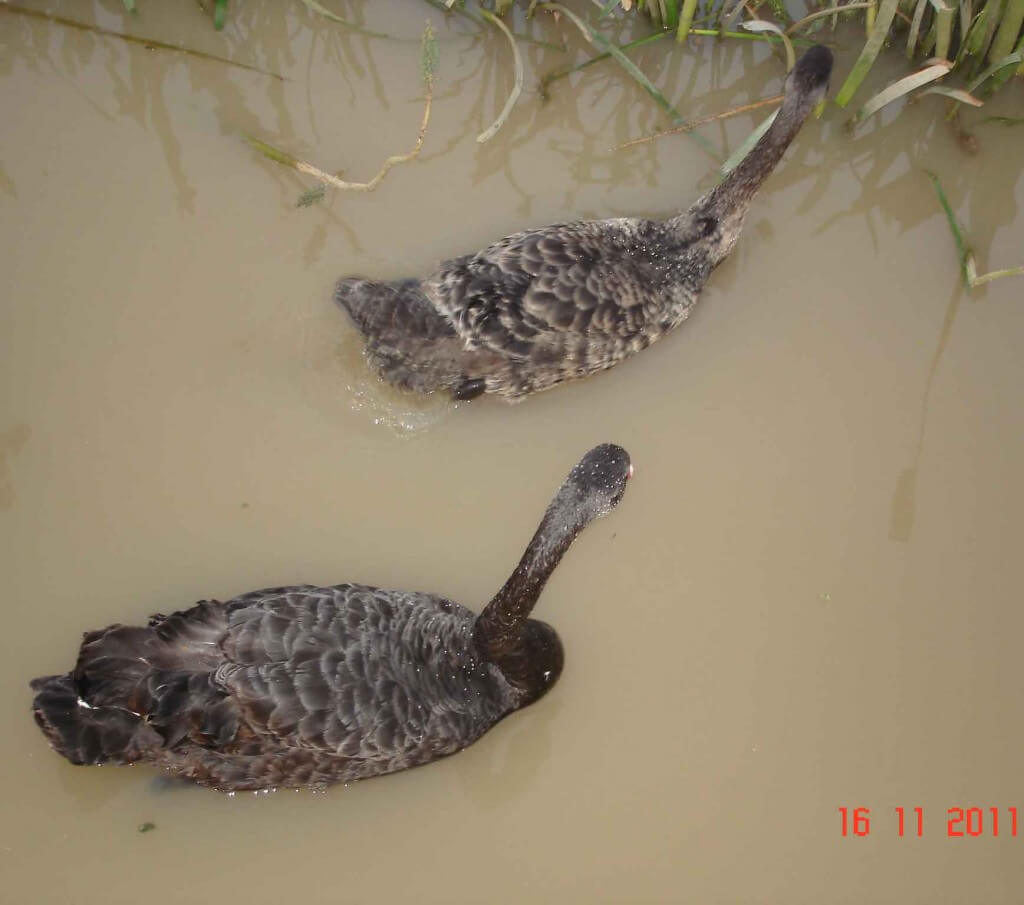
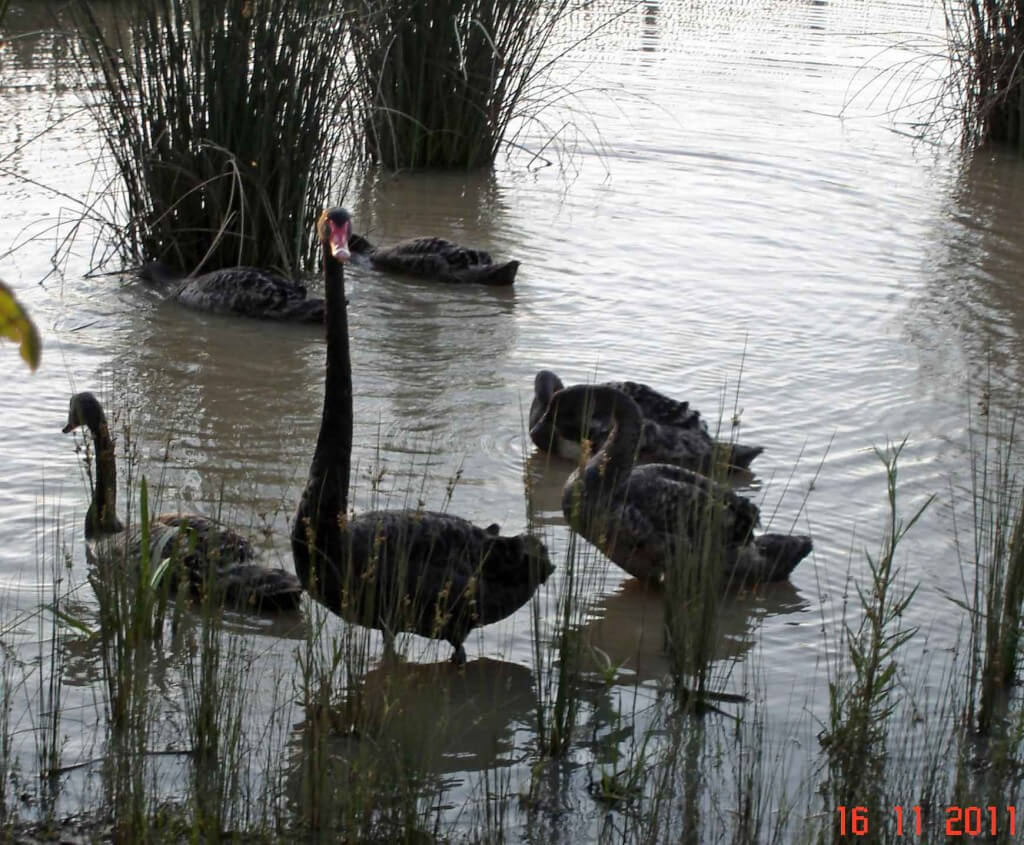
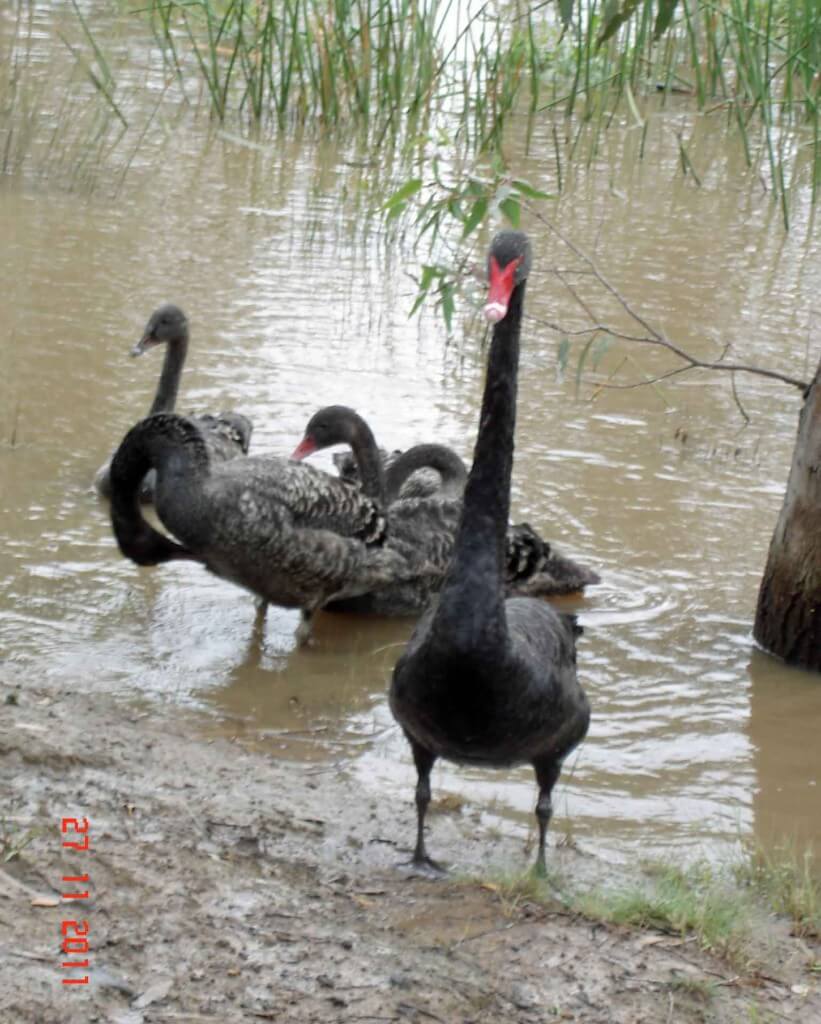
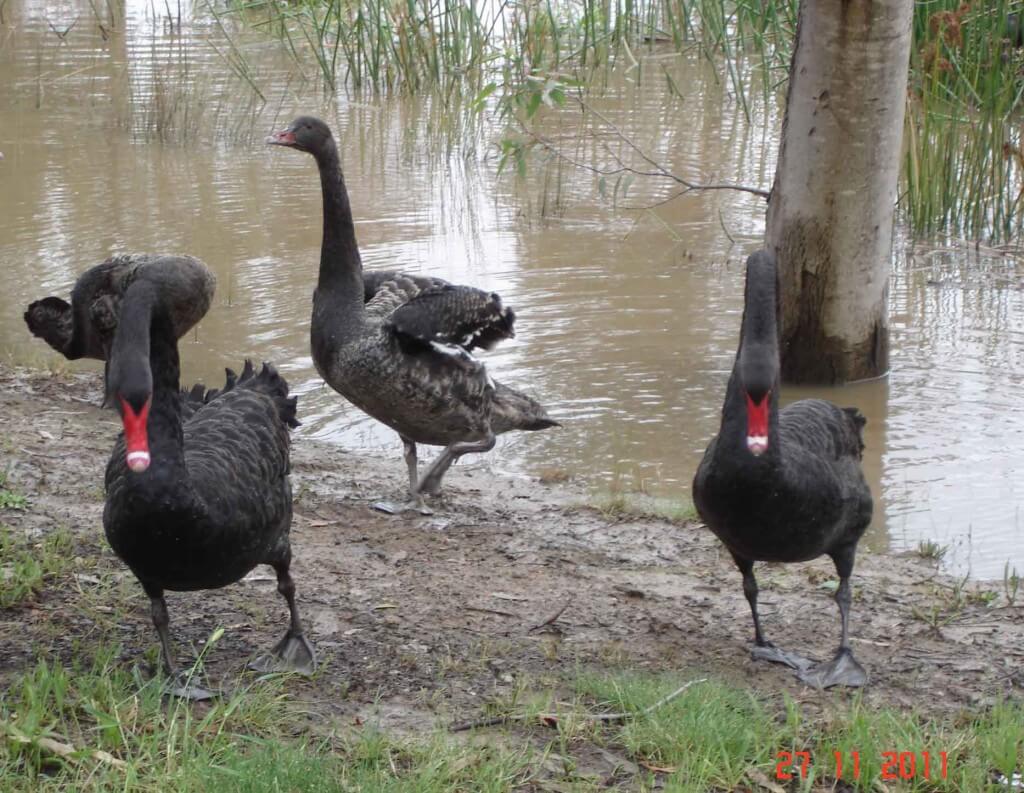
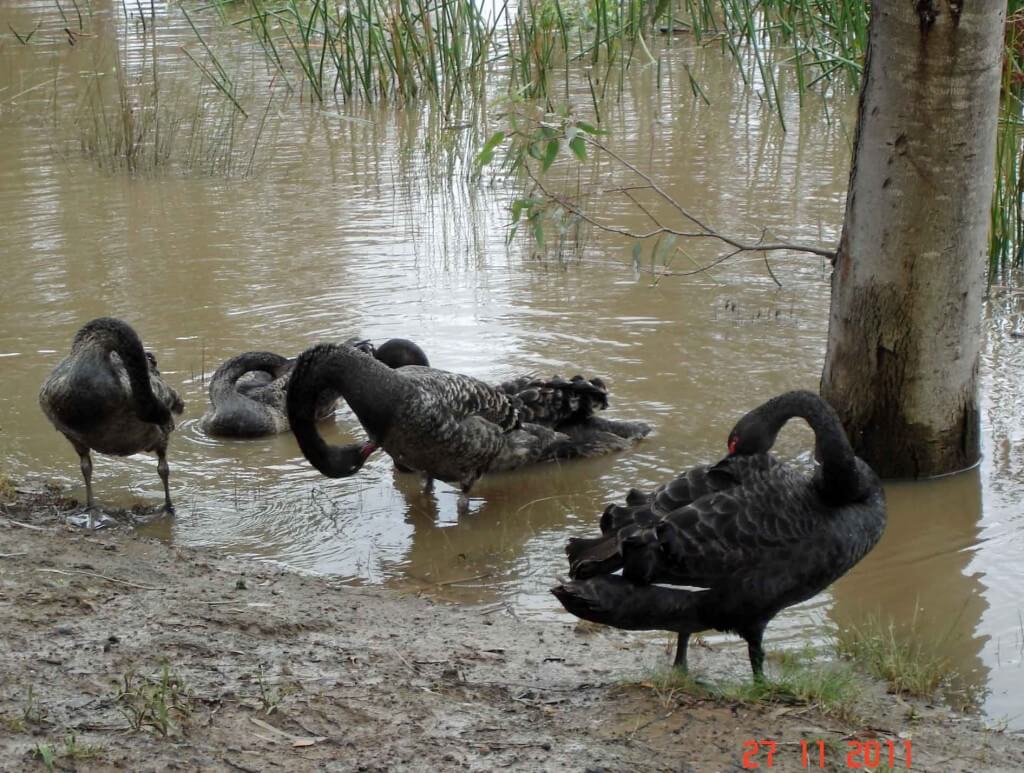
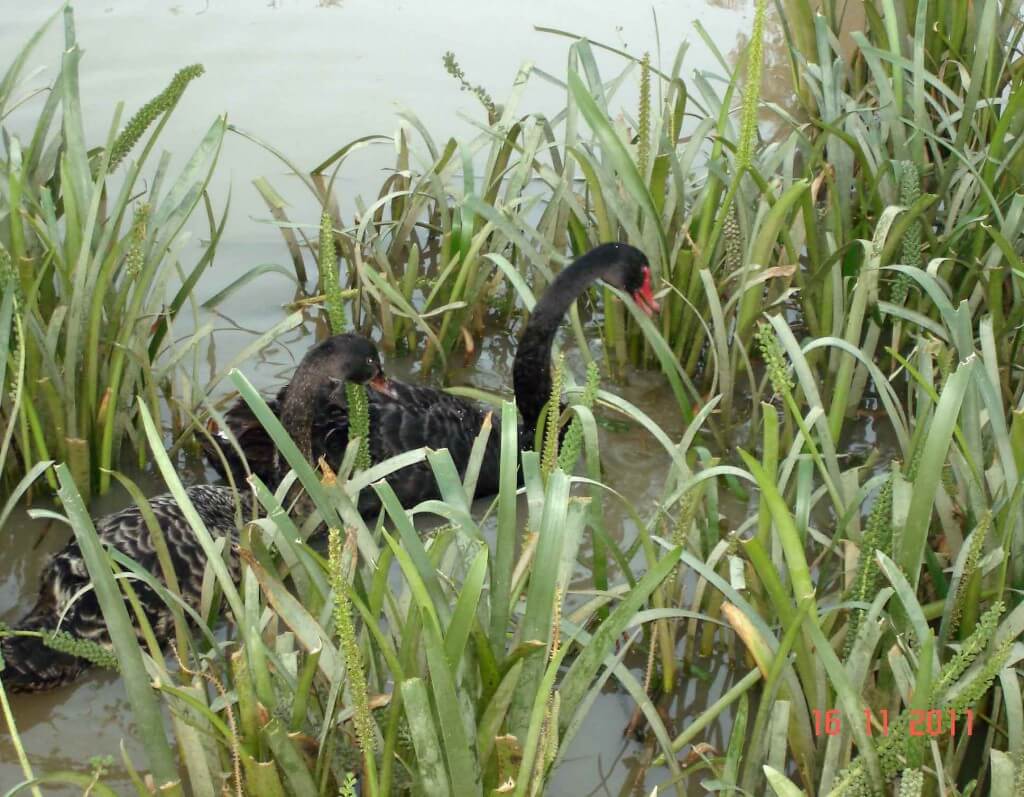
Wow, I’ve had my own experience with these black swans as well. They can be quite frightening sometimes but I guess that’s just them being defensive and being scared as well. They are still fascinating creatures, although you don’t see many of them in parks and in zoos.
Hi Tim. The black swans are not as common in Queensland as they are in Victoria. I know they had a pair at the Melbourne Zoo when I visited. They are beautiful birds. Thanks for your comment. Lyn
Nice info shared in your post. Black swans are endemic to Australia but have been introduced in many areas as ornamental birds in parks, gardens, zoos and aviaries, and escaped birds may establish feral populations. These are social birds that will gather in flocks of thousands. Great work . I like your post..
The black swans seem to be holding their own in an ever changing environment. It is good to be able to see and enjoy these beautiful birds.Thanks.
Black swans are such beautiful animals…the first time I saw them was when i went to visit a friend in Melbourne.
Before to travel to Australia i told my 6 years old son that we were going ‘on the other side of the world’…
And the first thing he asked me when he saw a black swan was: ‘Dad, are they black because in the other side of the world everything is inverse, like in?’
That was pretty funny..
I find that very funny! Kids are so interesting, how they put things together in their little minds. I hope you enjoyed your visit to Melbourne. The photo of that small bridge over the pond on your blog page is beautiful. Where is that taken? thanks so much for your comments.